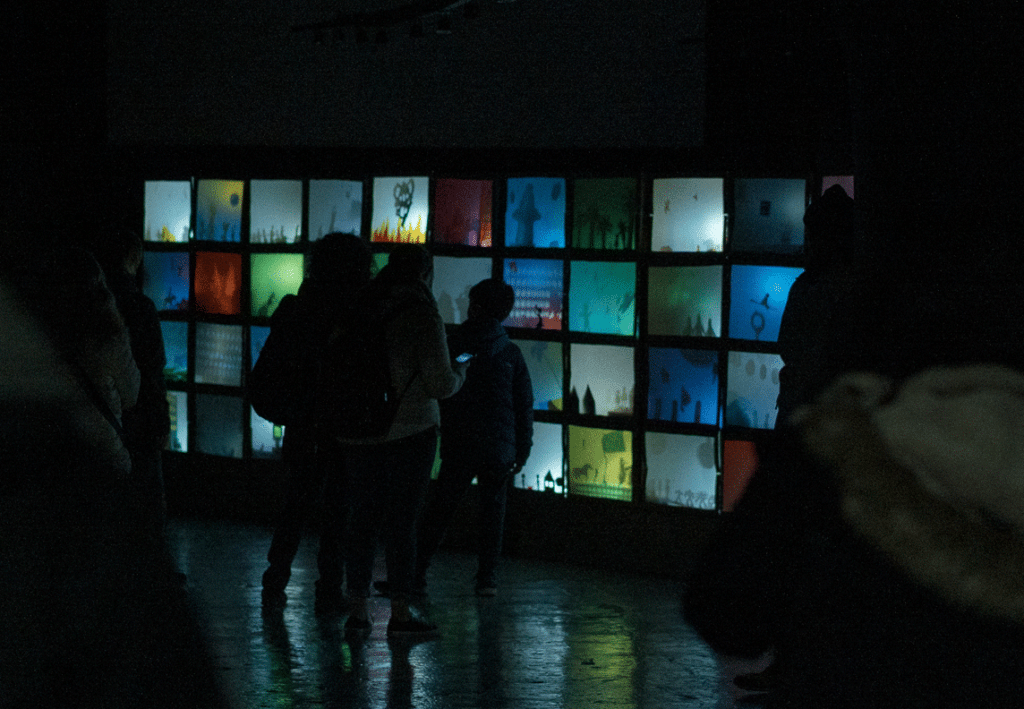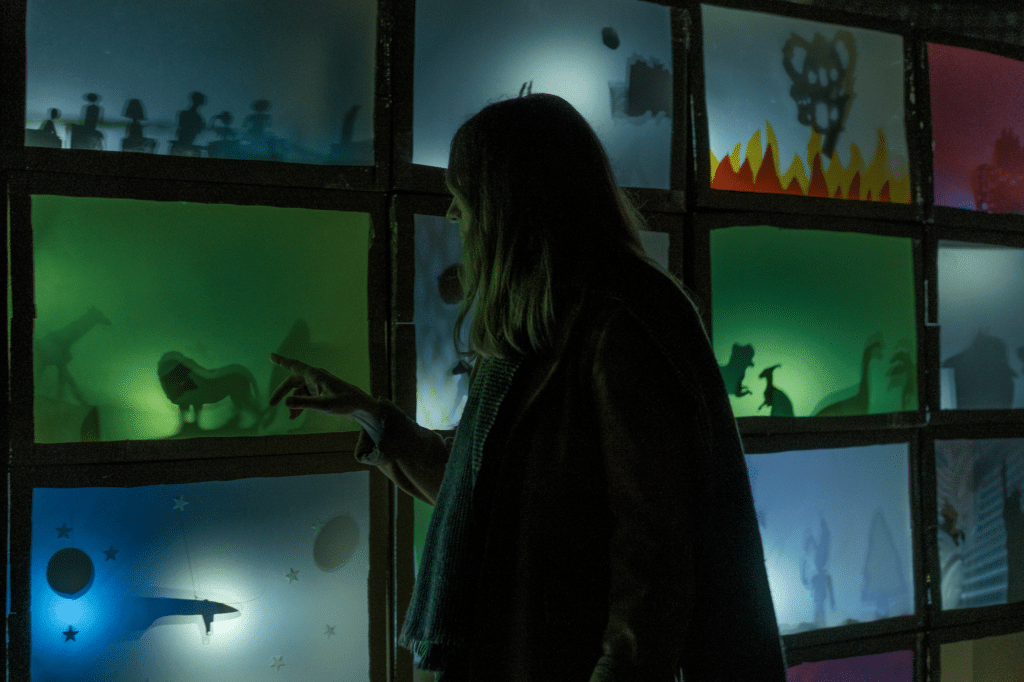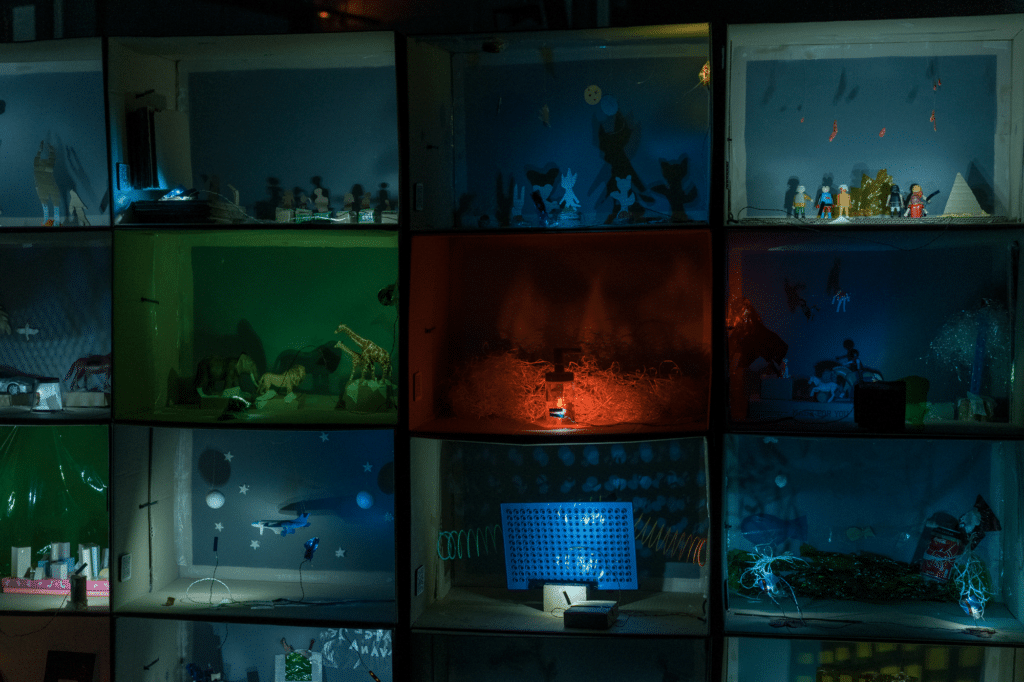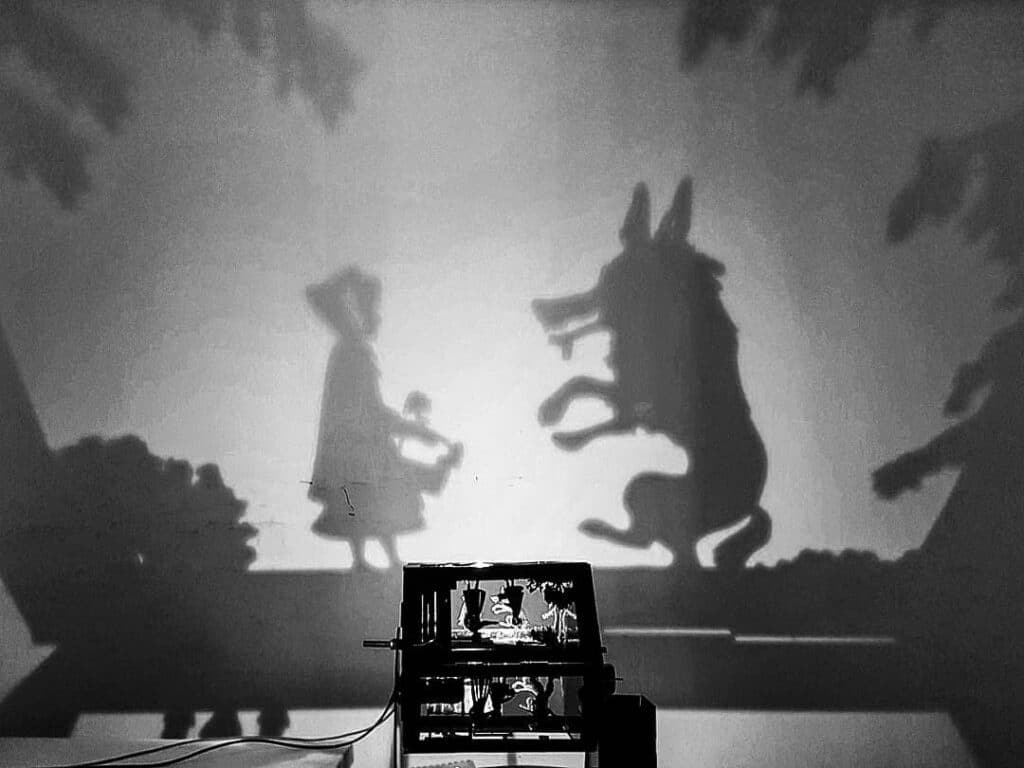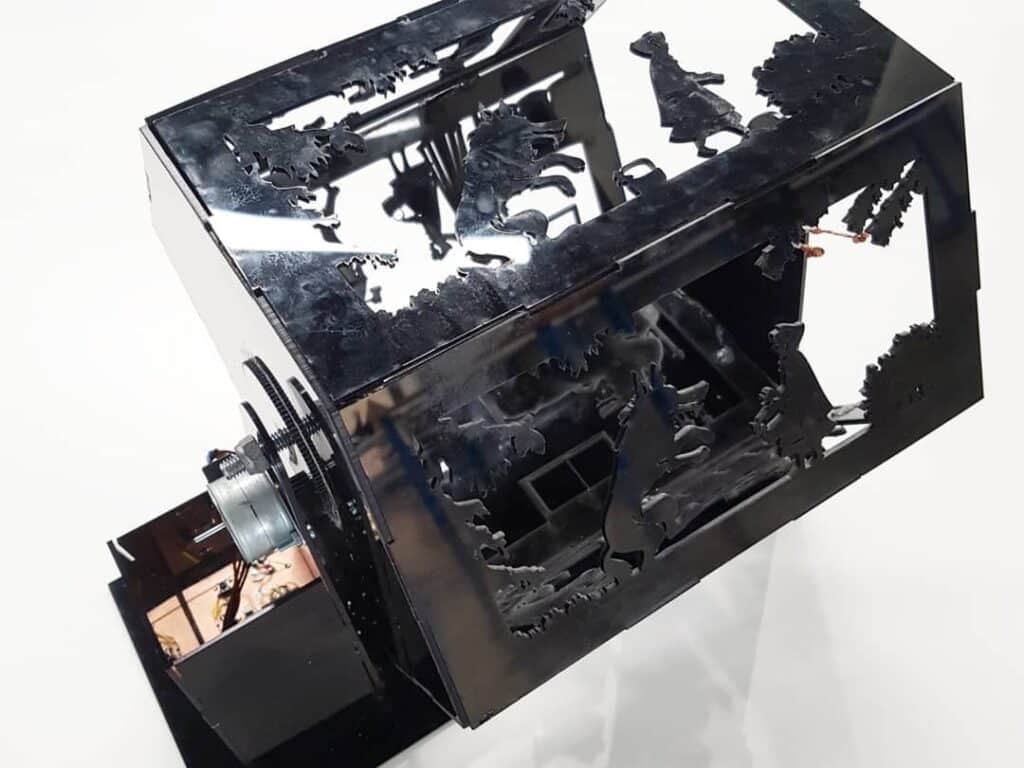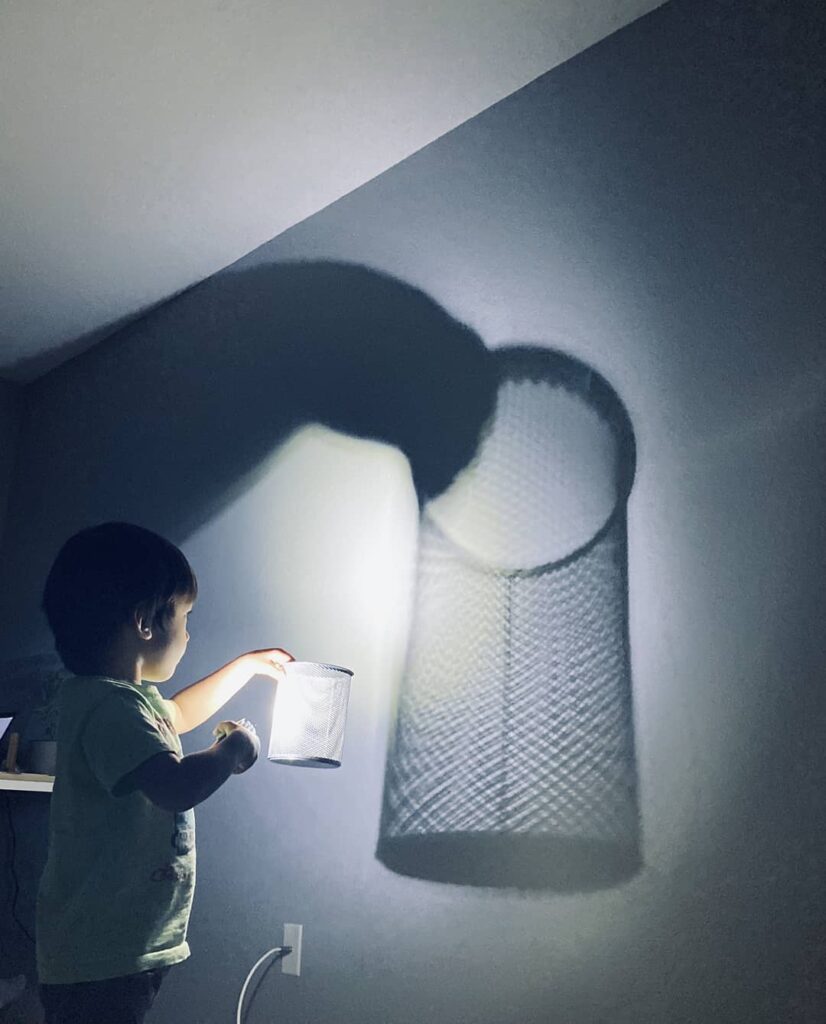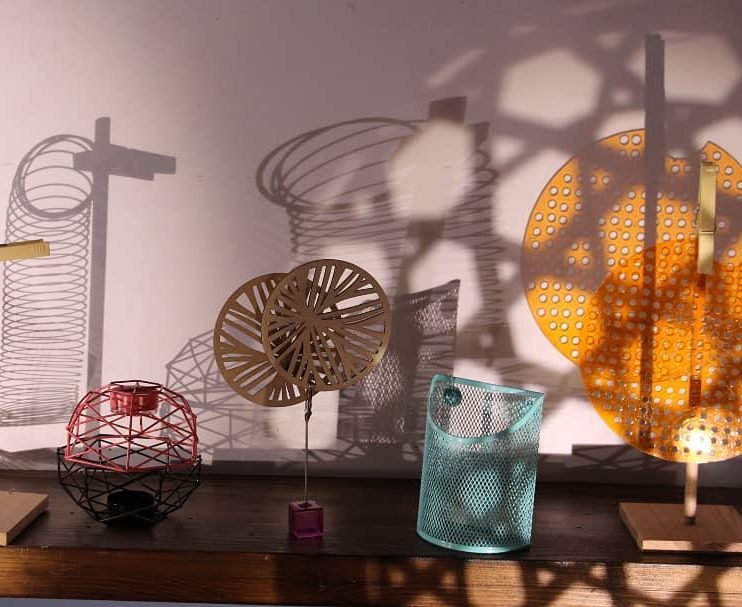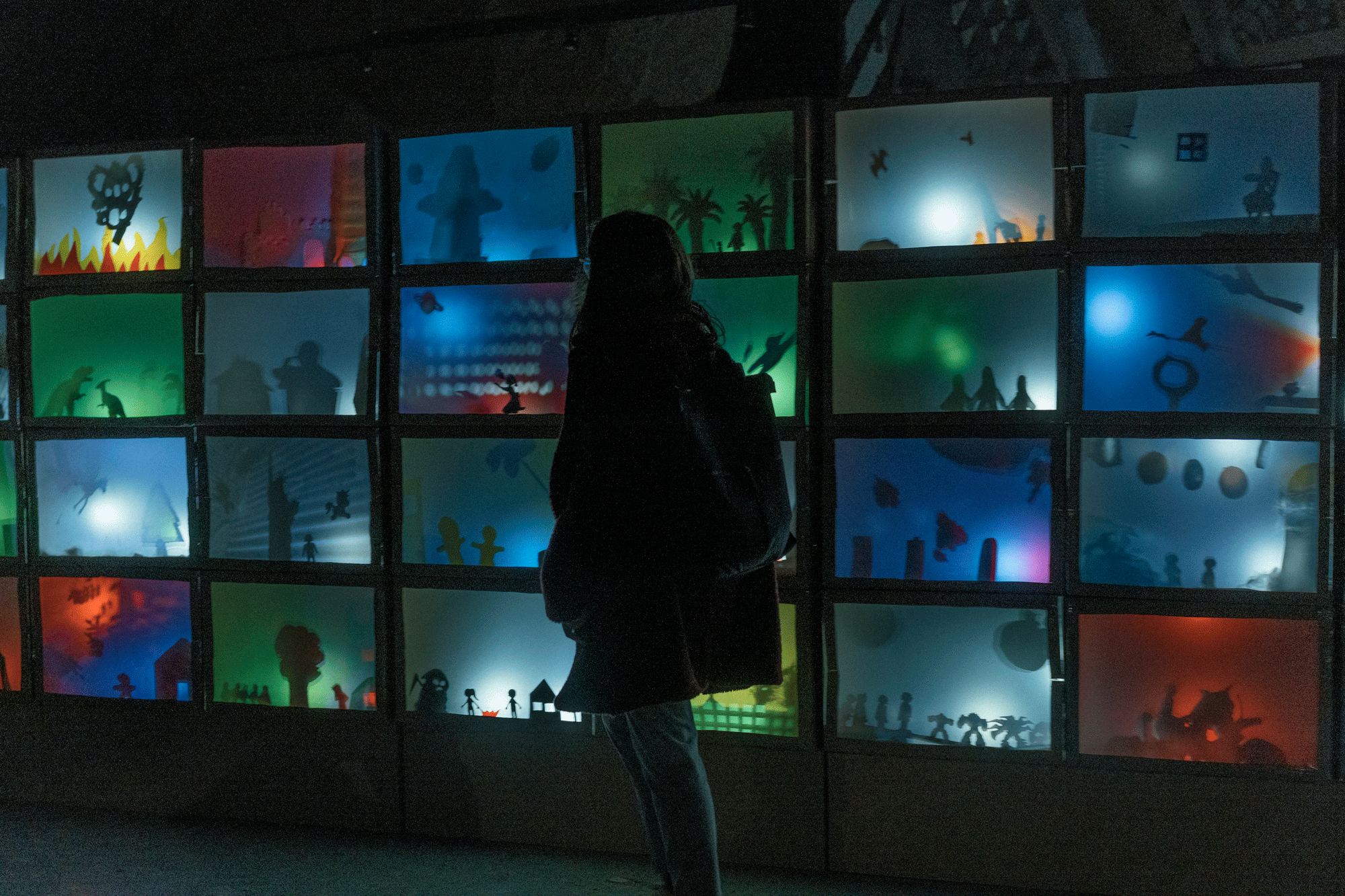
Jugando con la Luz
A distributed art installation created by children during the COVID-19 pandemic.
Introduction
Jugando con la Luz is a globally distributed art installation created by resilient children who live with uncertainty in the situation that is causing the COVID-19. Playing with different sources of light and establishing a new relationship with the materials around them, these young artists invent stories with which they express the emotions and feelings that this new normality provokes in them.
In a short period of six months, what began as a local school project became the revelation installation of the OFF Llum festival and from there one of the proposals selected by Frena la Curva, an international platform that promotes citizen initiatives against the coronavirus based on social innovation and civic resilience in times of pandemic.
With no other ambition than to give people a voice in complicated situations, Jugando con la Luz is now a virtual installation that, thanks to the collaboration of the Tinkering Studio of the Exploratorium in San Francisco, can be followed on social networks with the hashtag #LightUpOurDays or on the project website
Jugando con la Luz is the project dreamt of by anyone interested in education, the design of active learning experiences and the development of inspiring solutions in response to the social challenges we face in these uncertain times. If you also believe that creativity, steAm education (science, technology, engineering, art and mathematics) and learning-by-doing in community are essential ingredients for developing key skills and competences for the 21st-century, please read on because we will not let you down (Yakman, G. 2014), (Dewey, J. 1938), (UNESCO ICT Competency Framework for Teachers – UNESCO Digital Library’ n.d.).
How Jugando con la Luz Began
It all started on October 5th, 2019 (pre-covid era). Technically, our activities started earlier, when Fab Lab Barcelona at the Institute for Advanced Architecture Catalonia created the Future Learning Unit (FLU) in 2015. FLU is an action-research group whose objective is to accompany people in their personal growth on a creative, technological and social level. We organised a Bioplastics workshop at Maker-Faire Barcelona, October 2019. Maker-Faire is for people who want to learn- by-doing, create and share prototypes made with digital design and manufacturing. At the faire, you can also discover the latest advances in drones, experiment with sustainable and/or reused materials, amongst hundreds of other things.
Bioplastics are a type of plastic derived from organic products such as milk, agar agar, soybean oil, corn or potato starch. On this occasion, we posed a challenge where participants of all ages could manufacture their own as well as prototype possible applications: from moulds to 3D-printed objects with this type of biomaterial. We were proud of our workshop, it reflected that when you provide a common challenge, tools (the maker), content (steAm) and an appropriate methodology (learning-by-doing), you can empower people through creativity and enjoyment.
One of the groups that participated in the challenge was the Association of Mothers and Fathers (AMPA) of the Sant Martí del Poblenou School. These families were involved in the learning and personal growth of their children, and thus experienced first hand the benefits if steAm education and the maker challenges. We then proceeded to collaborate with the school by transferring the concept of the workshop to a school project. We accepted immediately— a no-brainer. We had motivated people willing to get involved, a school that was determined and open to active learning methodologies and the framework that would facilitate the development and viability of the collaboration, the Do-It initiative
Do-it, a Project for Entrepreneurial Development in the Maker World
Do-it (H2020-770063) is a projected financed by the European Union and formed by thirteen entities (including Fab Lab Barcelona at the Institute for Advanced Architecture), in which, we investigate how maker education facilitate the development of entrepreneurial skills for young socially innovative people in the open, digital and uncertain world in which we live. As part of this action-research process, we co-design interventions in formal and non-formal educational settings that we then analyse and evaluate with the aim of sharing evidence, learning, methodologies and tools useful to the community.
We were eager to collaborate, but we also had many unknowns to resolve. Who would participate in the project? What can we contribute? What is maker education? How can we use maker education in the classroom to facilitate active learning? How can we empower families, teachers and students? What methodology will we follow to accompany them? Can open and distributed tools help us document the project and then share it with other communities? And, most importantly, what is the biggest challenge that could motivate the whole community (management, families, teachers and students)?
Designing, Developing and Deploying Jugando con la Luz
We co-designed the centre project (intervention) together with the school community over an intense three-week period. We conducted sessions on mutual knowledge, definition of learning objectives, needs analysis and methodology to be followed. During the design process, we found our answer to ‘the challenge’. We would participate in the OFF LLUM 2020 festival in Poblenou, Barcelona. OFF LLUM is a benchmark event that focuses on experimental light art and on the local proposals of the creation and innovation spaces that form the creative community of Poblenou.
The whole community was highly motivated during the twelve weeks of preparation before the opening of the facility. In teams, the children had to invent and design a story and represent it in a cardboard box using recycled materials and different light sources. We prepared an online repository with the methodology to follow, documentation, references, content and didactic guide that the teachers used in the different sessions of experimentation and prototyping with the students.
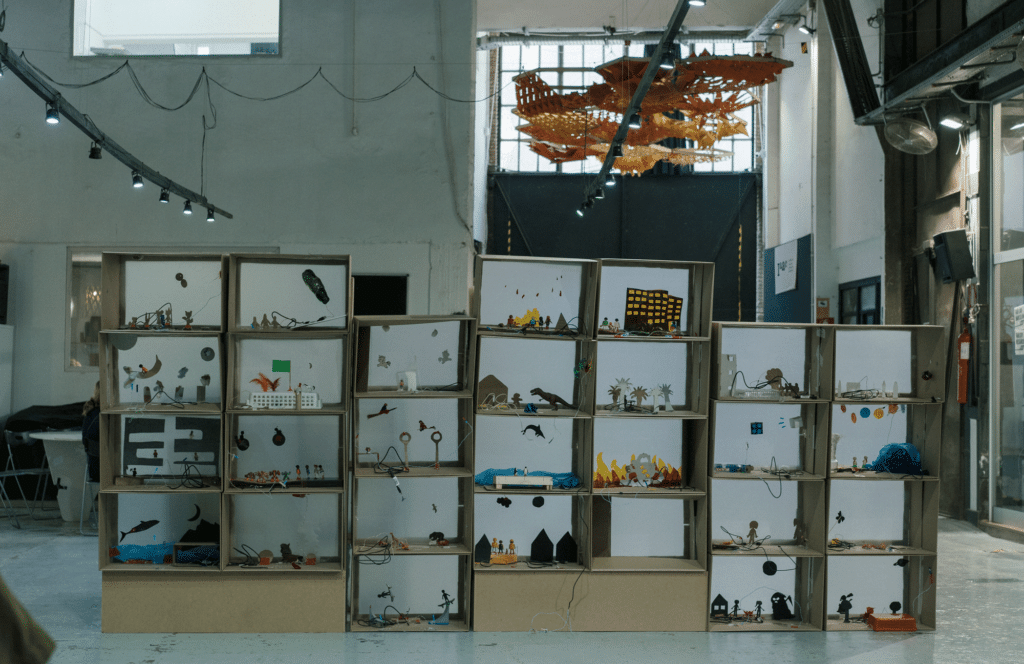
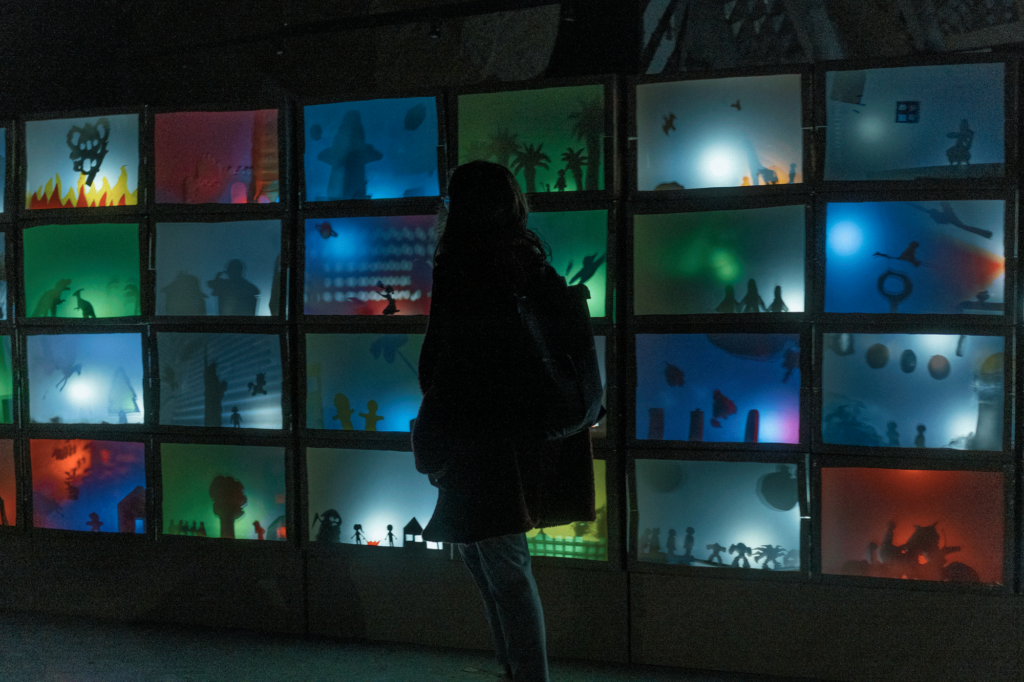
The Result— an Interactive Light Installation
The result? An installation at Fab Lab Barcelona where a wall of 40 light boxes full of exciting stories illuminated the 3000 attendees who passed by at some point during the festival. It was wonderful to see the happy and proud faces of the students as they felt the recognition of the project and the positive impact on the whole community.
Activating Jugando con la Luz During the Lockdown
When you least expect it, life puts us to the test. On 9th March 2020, the Spanish government declared total confinement. This meant thousands of students were no longer able to go to school, many families in Spain were left with a remaining sense of fear and uncertainty. It is in this context that Frena La Curva was created, an international and distributed platform that promotes citizen initiatives against the coronavirus based on social innovation and civic resilience in times of pandemics. Laia Sánchez, one of the promoters who knew Jugando con la Luz, proposed that we participate in order to give thousands of children at home who were living the situation with a lot of uncertainty the chance to express themselves through art and making. We already had all the content and methodology designed. So we then focused on making an appeal through social networks so that teachers could use it and apply our methodology locally in their schools as a distance learning maker activity, or so that families could work on emotions and creativity from play and making at home.
More than 15 people joined the initiative by adapting the content to families and translating it into other languages (Portuguese, Galician, Spanish and English). The reception on the networks was so great that, to our surprise, the Exploratorium’s Tinkering Studio in San Francisco also joined in. The fact that one of the most renowned teams in the world in terms of experimentation and dissemination of steAm decided to join the call gave us a boost of energy. It was very easy to coordinate with them and transform Playing with Light into a virtual installation that can be followed on social networks with the hashtag #LightUpOurDays or on website. So far we have received over 500 proposals from 10 different countries and over 200,000 interactions on social networks. It has been a pleasure to explain how what started out as a simple idea has become a project for everyone. This is due to the open and distributed knowledge and involvement of the creative community around the world. Long live Jugando con la Luz!
This article originally appeared in Viral Design, the third edition of the annual publication of Distributed Design Platform, a Creative Europe Programme under grant agreement No. 2017 – 3157 / 001 – 001, for which Fab Lab Barcelona is a contributing member.
About the Authors

Xavier Domínguez
Xavier is a multimedia engineer, Head of DTecla program. AI & Maker Education Specialist, Constructionist, Equitable and Inclusive action research at Fundació Diverse. Since 2017 he has focused his entire professional career on researching methods and tools to accompany people in developing competencies and skills for life through creativity and innovative use of technology under the principles of circularity, sustainability and equity. Xavier is involved in private and EU-funded research projects such as TEC-LA, which measures the impact of introducing maker project-based learning for the development of STEAM competences, skills and knowledge in primary school students, DO IT, on entrepreneurship and social innovation for young people, PHALABS 4.0 which links photonics research and its practical application in the Fab Lab, POP-MACHINA which aims to demonstrate the power and potential of the maker movement and collaborative production for the circular economy of the European Union or SHEMAKES which aims to empower future innovators of the sustainable fashion industry through inspiration, skills and networking.

Santi Fuentemilla
Future Learning Lead
Santiago Fuentemilla has a Master’s degree in Architecture from the University of La Salle (Universitat Ramon Llull), Spain. In 2012 he graduated from the Fab Academy, an intensive 6-month digital manufacturing and rapid prototyping program led by Neil Gershenfeld at MIT’s Center for Bits and Atoms (CBA). He is currently doing a PHD in digital manufacturing at the EGA UPC (Universitat Politecnica de Catalunya). As a professional architect, Santi has worked in several architecture companies carrying out projects at an international level for more than 10 years. Since 2013 he has been part of the Fab Lab Barcelona core team as coordinator and leader of the Future Learning research area. The area focuses on designing and implementing innovative educational models promoting growth, learning and creativity to generate opportunities to achieve the goals and challenges of uncertain futures. He is the director of the global academic programs Fab Academy and Fabricademy in the Barcelona node. Since 2017 he has been a professor of the Master in Design for Emergent Futures (MDEF). Santi participates in private and EU-funded research projects such as TEC-LA, which measures the impact of the introduction of maker project-based learning for the development of STEAM competences, skills and knowledge in primary school students, DO IT, on entrepreneurship and social innovation for young people, PHALABS 4. 0 which links photonics research and its practical application in the Fab Lab, POP-MACHINA which aims to demonstrate the power and potential of the maker movement and collaborative production for the circular economy of the European Union or SHEMAKES which aims to empower future innovators in the sustainable fashion industry through inspiration, skills and networking.
